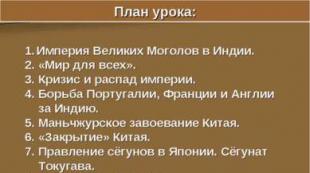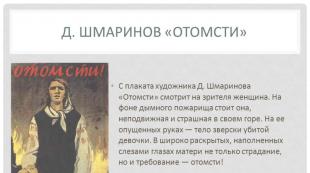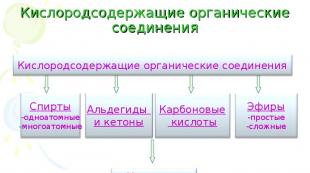Раздел 1 задание по аудированию a university. Аудирование. Разбираем ЕГЭ по английскому языку: раздел «Аудирование»
Подготовка к ОГЭ и ЕГЭ
Среднее общее образование
Линия УМК М. В. Вербицкой. Английский язык "Forward" (10-11) (баз.)
Линия УМК О. В. Афанасьевой, И. В. Михеевой, К. М. Барановой. "Rainbow English" (10-11) (баз.)
Английский язык
Разбираем ЕГЭ по английскому языку: раздел «Аудирование»
Готовимся к ЕГЭ по английскому языку вместе с педагогами. Разбираем задания, ищем решения, объясняем ответы.Джалолова Светлана Анатольевна , учитель английского языка Высшей квалификационной категории. Победитель конкурсного отбора на соискание Гранта Москвы в сфере образования 2010г. Старший эксперт ГИА ЕГЭ по английскому языку. Победитель Всероссийской Олимпиады учителей английского языка «Профи-край» 2015 год. Почетная грамота Министерства образования РФ 2014 г., Грамота победителя конкурса лучших учителей РФ 2007г., Диплом победителя конкурса на соискание Гранта Москвы 2010 г.. Стаж работы - 23 года.
Недашковская Наталья Михайловна
, Учитель английского языка Высшей квалификационной категории. Победитель ПНПО 2007 г. Победитель конкурсного отбора на соискание Гранта Москвы в сфере образования 2010г. Эксперт ГИА ОГЭ по английскому языку. Проводила педагогическую экспертизу учебных изданий при РАО 2015-2016. Почетная грамота Министерства образования РФ 2013 г., Грамота победителя конкурса лучших учителей РФ 2007г., Диплом победителя конкурса на соискание Гранта Москвы 2010 г. Стаж работы - 35 лет.
Подвигина Марина Михайловна
, Учитель английского языка Высшей квалификационной категории. Победитель ПНПО 2008 г. Победитель конкурсного отбора на соискание Гранта Москвы в сфере образования 2010г. Старший эксперт ГИА ЕГЭ по английскому языку. Проводила педагогическую экспертизу учебных изданий при РАО 2015-2016. Почетная грамота Министерства образования РФ 2015 г., Грамота победителя конкурса лучших учителей РФ 2008г., Диплом победителя конкурса на соискание Гранта Москвы 2010 г. Стаж работы - 23 года.
Трофимова Елена Анатольевна
, Учитель английского языка Высшей квалификационной категории. Старший эксперт ГИА ЕГЭ по английскому языку. Почетная грамота Министерства образования РФ 2013 г. Стаж работы - 15 лет.
Задание 2А – 2G
Задание 2. Вы услышите диалог. Определите, какие из приведенных утверждений А–G соответствуют содержанию текста (1 - True), какие не соответствуют (2 - False) и о чем в тексте не сказано, то есть на основании текста нельзя дать ни положительного, ни отрицательного ответа (3 - Not stated). Занесите номер выбранного Вами варианта ответа в таблицу. Вы услышите запись дважды. У Вас есть 20 секунд, чтобы ознакомиться с заданием.
Для успешного выполнения данного задания следует помнить следующее:
- Необходимо извлекать запрашиваемую информацию из реплик каждого говорящего
- Важно понимать разницу между вариантом «Неверно» и вариантом «В тексте не сказано». Неверное предложение содержит информацию, которая противоречит аудиотексту, а вариант «В тексте не сказано» означает, что в аудиотексте ничего не говорится по этому поводу.
Прежде, чем приступать к выполнению данного задания, необходимо внимательно прочитать утверждения и попробовать представить, о чем будет говориться в аудиотексте. В данном задании нельзя предположить правильный ответ до прослушивания. До прослушивания можно представить, какая информация может потребоваться (дата, время, цифры и т.д.), чтобы решить для себя во время прослушивания какое утверждение верное, какое - нет, о каком высказывании ничего не говорится в аудиотексте.
Рассмотрим аудиотекст диалога и утверждения к нему:
1. Joan and Steve begin with settling the date of the party
2. Joan and Steve were satisfied with the last year"s party
3. Steve is not sure how to spell the name of the new Indian restaurant
4. Steve visited the Park View Hotel before
5. Joan will call the restaurants
6. Joan and Steve agree on the price of £12 a head
7. The boss of Joan and Steve is a vegetarian.
Joan:
Steve:
Joan:
First - dates… well. That’s straightforward.
Steve:
The last working day before Christmas… which is…
Joan:
… which is December 21 st .
Steve:
Joan:
Steve:
The Red Lion, wasn’t it?
Joan:
Yeah. We ought to go for something more expensive, ‘cause you… Steve: … you get what you pay for.
Joan:
Steve:
How do you spell that?
Joan:
R-A-J-D-O-O-T.
Steve:
But it’s bound to be packed.
Joan:
Steve:
Joan:
And the London Arms just in case.
Steve:
London Arms…
Joan:
Steve:
No. I’ll do it, Joan. You are really busy. Have you got the numbers? Joan: Not for the Rajdoot, but … right… Park View Hotel: 777193 and … London Arms: 207658.
Steve:
Joan:
Up to £15 a head?
Steve:
Joan:
Steve:
OK. We’ll say £12?
Joan:
OK.
Steve:
Joan:
Steve:
1. Joan and Steve begin with settling the date of the party.
Joan:
Right, Steve…About our party! Let’s try and get it sorted out today so we don’t have it hanging over us. OK?
Steve:
Good idea, Joan. I’ll take notes.
Joan:
First - dates… well. That’s straightforward
Ответ - 1 . Джоан и Стив начинают диалог с того, что собираются определиться с датами своего праздника.
2. Joan and Steve were satisfied with the last year"s party.
Steve:
…which is going to be pretty difficult to book at Christmas so we’d better think of two or three places just to be on the safe side.
Joan:
Well, last year was a disaster.
Steve:
The Red Lion, wasn’t it?
Joan:
Yeah. We ought to go for something more expensive, ‘cause you…
Steve:
… you get what you pay for.
Ответ - 2 . Стив и Джоан отнюдь не были удовлетворены вечеринкой (were satisfied), оба собеседника считают, что поздний заказ ресторана, невозможность выбора ресторана в канун праздника было катастрофой (was a disaster) для вечеринки в прошлом году.
3. Steve is not sure how to spell the name of the new Indian restaurant.
Joan:
That new Indian restaurant in Wetherfield is supposed to be excellent… the Rajdoot.
Steve:
How do you spell that?
Joan:
R-A-J-D-O-O-T.
Ответ - 1 . Стив просит произнести название ресторана по буквам.
4. Steve visited the Park View Hotel before.
Joan:
Well, let’s put that down as the first choice and have some back-ups. What about the Park View Hotel as the second choice?
Steve:
Yes, that’s always reliable. Park View Hotel…
Joan:
And the London Arms just in case.
Ответ - 3 . Стив в диалоге всего лишь говорит, что the Park View Hotel (ресторан) - надежен. Никаких указаний на то, что Стив там был ранее нет.
5. Joan will call the restaurants.
Joan:
I’ll call them now if you want.
Steve:
No. I’ll do it, Joan. You are really busy. Have you got the numbers?
Ответ - 2 , так как Джоан вызывается обзвонить рестораны, но Стив против и собирается сделать это сам.
6. Joan and Steve agree on the price of £12 a head.
Steve:
Great. Before I ring, we’d better just make sure they are within the price range.
Joan:
Up to £15 a head?
Steve:
I think you’ll find some people won’t be able to go that high.
Joan:
Well, you can’t get anything decent under £10.
Steve:
OK. We’ll say £12?
Joan:
OK.
Ответ - 1. Джоан и Стив согласны на сумму 12 долларов с человека.
7. The boss of Joan and Steve is a vegetarian.
Steve:
And we’d better make sure there’s good vegetarian food.
Joan:
Yes, you know what the boss is like.
Steve:
Don’t remind me. I’ll let you know as soon as I find out anything.
Ответ - 1. Стив и Джоан стремятся убедиться в наличии хорошего вегетарианского меню для начальника.
Задания 3-9 Множественный выбор. Вы услышите интервью. В заданиях 3–9 запишите в поле ответа цифру 1, 2 или 3, соответствующую выбранному Вами варианту ответа. Вы услышите запись дважды
Прежде чем выполнять данное задание, необходимо внимательно прочитать вопросы в задании, найти в них ключевые слова и подчеркнуть их, постараться подобрать синонимы к ключевым словам. Обращайте внимание не столько на слова, сколько на контекст. Большое значение в этом задании имеет контекст, так как и правильные, и неправильные варианты могут содержать слова и выражения из аудиотекста. В этом задании, как и в предыдущем, необходимо следить за репликами каждого участника диалога, так как запрашиваемая информация может быть в репликах любого участника интервью.
Рассмотрим аудиотекст интервью и утверждения к нему:
Presenter:
Dr Strait:
Presenter:
You mean we have to put ourselves into the role of the manager or supervisor?
Dr Strait:
Yes. And then we are going to imagine how different applicants would fit into the team or group they have to work with. So, we’ll look at some examples later.
Presenter:
It’s just theoretical at the moment…
Dr Strait:
Presenter:
Dr Strait:
Presenter:
Dr Strait:
Presenter:
But it doesn’t tell you anything. It doesn’t tell you if they are easygoing or hate smokers or whatever.
Dr Strait:
Well, arguably it does give you information about an applicant’s character, but also … more and more employers around the world are making use of what is called ‘a personality questionnaire’ to help them select new staff and…
Presenter:
Sorry, what’s it called?
Dr Straight:
Presenter:
Which makes you think that there (fade out)
1) Which of the following is emphasised in the introduction?
1. Interviews
2. Staff selection
3. Question techniques
Presenter:
Tonight we continue talking with Dr Strait. So far we’ve looked at various aspects of staff selection and I think by now you should all be beginning to see how much more there is to it than just putting the applicants through a short interview or asking the ‘right’ questions. So I think you should be ready for today’s talk on ‘matching the person to the job’.
Dr Strait:
We’re going to talk today about the importance of choosing that all- round ‘right’ person.
Ответ: 2 - Staff selection
2) Dr Strait plans to discuss …
- the value of team work.
- basic managerial skills.
- how an applicant would fit in a team.
Dr Strait:
Yes. And then we are going to imagine how different applicants would fit into the team or group they have to work with. So, we’ll look at some examples later
Dr Strait:
Yes. The point is you can select someone – even a friend – who has all the right qualifications… degrees… certificates, whatever. You can also check that they have a lot of experience… that they’ve done the sort of tasks that you want them to do in your office already, in a similar environment.
Ответ: 3 - how an applicant would fit in a team.
3) Dr Strait underlines the importance of an applicant’s…
- qualifications.
- experience.
- group work skills.
Dr Strait: Yes. The point is you can select someone – even a friend – who has all the right qualifications… degrees… certificates, whatever. You can also check that they have a lot of experience… that they’ve done the sort of tasks that you want them to do in your office already, in a similar environment. But if they start work and you realize that they just don’t get along with everybody else, that… say they’ve got sharply contrasting views on how something will work… well, with the best intentions you may be backing a loser.
|
Dr Strait underlines the importance of an applicant’s / Доктор Стрейт подчеркивает, что соискателю важны |
|
|
3.group work skills. |
they start work and they just don’t get along with everybody else, that… say they’ve got sharply contrasting views on how something will work… well, with the best intentions you may be backing a loser. |
|
1.qualifications, |
упоминаются в тексте, но судя по контексту всего отрывка, по значимости образование и опыт уступают умению работать в команде (см начало отрывка) |
Ответ: 3 - group work skills.
4) According to Dr Strait, an important part of teamwork is having trust in your…
- colleague’s ability.
- employer"s directions.
- company training.
Presenter:
Wouldn’t it be just a question of company training though?
Dr Strait:
Not always. Particularly in a team situation and I think it’s important to think in terms of that type of working environment. People have to have faith in each other’s ability to carry out the task their boss has set them. They have to trust that everyone will do their part of the job, and you can’t necessarily train people for this.
Ответ: 1 - colleague’s ability
5) The presenter doubts the effectiveness of…
- company training.
- job interviews.
- question techniques.
Presenter: But it’s like trying to find out what someone’s personality is like in a job interview... I mean you can’t just do that. Even if you try, you won’t find out what they are really like until they actually start work.
|
The presenter doubts the effectiveness of / Журналист сомневается в эффективности собеседований (2. job interviews). Им произносится следующая фраза: …it’s like trying to find out what someone’s personality is like in a job interview... I mean you can’t just do that |
|
|
1. company training 3. question techniques |
А следующие фразы: «you can’t necessarily train people for this», « in most interviews you usually ask candidates questions about their hobbies and what they like doing in their spare time… that sort of thing…», которые можно посчитать за синонимичные выражения данных вопросов, звучат в аудиозаписи совсем в других контекстах и ВНИМАНИЕ! принадлежат не журналисту, а доктору Стрейт. 1) Dr Strait: They have to trust that everyone will do their part of the job, and you can’t necessarily train people for this. 2) Dr Strait: Well, in most interviews you usually ask candidates questions about their hobbies and what they like doing in their spare time… that sort of thing… so employers are already involved in the practice of… well, doing part of the task. |
Ответ: 2 - job interviews.
6) Dr Strait claims that finding out personal information is…
- a skill that requires practice.
- avoided by most interviewers.
- already a part of job interviews.
Dr Strait:
Well, in most interviews you usually ask candidates questions about their hobbies and what they like doing in their spare time… that sort of thing… so employers are already involved in the practice of… well, doing part of the task.
Presenter
:
But it doesn’t tell you anything. It doesn’t tell you if they are easygoing or hate smokers or whatever
Dr Strait:
Well, arguably it does give you information about an applicant’s character,
Ответ: 3
- already a part of job interviews.
7) According to Dr Strait, Personality Questionnaires…
- have a very long history.
- were first used by the military.
- were invented by large employers.
Dr Straight: A Personality Questionnaire. They have to be filled out by the candidates sometime during the selection procedure, often just before an interview. The idea is actually quite old. Apparently they were used by the ancient Chinese for picking out clerks and civil servants, and then later they were used by the military to put people in appropriate areas of work. They’ve gained a lot of ground since then and there are about 80,000 different tests available now and almost two thirds of the large employers use them.
Ответ: 1 - have a very long history.
По окончании выполнения зданий необходимо перенести ответы в бланк ответов.
Holidays are an essential part of our culture. Yet not all people understand the importance of their celebration. They consider any celebration to be a waste of time, which, in fact, is not true.
In my opinion, we should celebrate holidays because they help to keep up our traditions and to preserve our culture. In addition, it is a good chance to bring the family together and to meet all your friends and relatives. What is more, there is a special atmosphere behind each holiday and it is a good opportunity to make people happy. As for me, I like the spirit of a holiday and always try to follow the traditions connected with it.
Nevertheless, not all people enjoy celebrations. They are not interested in ancient traditions and only regard holidays as additional time off work. They also believe that holidays are just an excuse for spending money or making it.
Actually, such attitude is wrong. I believe it is very important that traditions do survive in the country as they help to define who people are. Although people spend lots of money on presents, it is not only the present that counts, it is not only the present that counts, but also the fact that people greet each other and share the joy of the day.
To conclude, I want to say that holidays help to bring generations together. Personally, I enjoy celebrations. For me, a holiday is not just a day off but a special occasion and I usually prepare for it beforehand.
ЕГЭ 2018 Английский язык ПЧ Раздел 1 (аудирование) Задание 1
Вы услышите 6 высказываний. Установите соответствие между высказываниями каждого говорящего A–F и утверждениями, данными в списке 1–7 . Используйте каждое утверждение, обозначенное соответствующей цифрой, только один раз. В задании есть одно лишнее утверждение . Вы услышите запись дважды. (На экзамене у Вас будет 20 секунд, чтобы ознакомиться с заданием)
Тексты для аудирования.
Now we are ready to start.
Speaker A
Holiday or no holiday, if I have a business deal going on, I work. At Christmas, for example, I am often quite alone because I’ve got no family or kids but that doesn’t stop me from enjoying myself. Sometimes, I go to a party with some of my single friends but even then, we usually reserve that for the New Year celebration. So you see, this holiday that seems to be so important for so many people, is really just another day for me.
Speaker B
The night before Christmas I take a train to the suburbs to visit my parents. It takes an hour to get there by car but the traffic on Christmas Eve is so bad that it takes hours to drive there. That’s why I take the train. On the morning of the 25th we usually have a leisurely breakfast and open the presents Santa has left for us. Of course, I am all grown up now but believing in Santa is still kind of fun in our family. We like finding small packages in our stockings.
Speaker C
There is really no more fun for me than to spend my Christmas holidays with my big family. My six brothers and sisters all sleep in one room the night before Christmas and before bed my dad reads us Christmas poems. Then he leaves, and we make up a strategy to wake up our parents the next morning. We try to be creative because we want them to get up early to open our presents, and they like us to surprise them with a special wake up call.
Speaker D
You know, Christmas is such a lovely family holiday. My children are all gone from home now with families of their own, but on Christmas morning they come to my house for breakfast. I’ve got 26 grandchildren opening presents around my tree. To say the least, my heart is always full on this day because not only do they open the presents I’ve prepared, but they also bring their presents for me. I love their handmade things – they are filled with love.
Speaker E
I am a student and rather far away from home. Unfortunately, Christmas break is not long enough for me to travel to see my family, so I stay at the dormitory. Our college is very nice because it organizes a Christmas party for everyone who finds themselves alone on this day. The college makes a traditional Christmas meal and puts a big tree in the middle of the dining hall. We all bring a present and put it under the tree for someone else to open.
Speaker F
Our family always takes a holiday during Christmas break. We usually go abroad and celebrate this day in a hotel. One time we were in Africa, so on Christmas Eve we went to the beach and had a barbeque. My parents put our presents under the palm tree outside our hotel room, and that’s where we found them the next morning. I remember laughing that Santa went swimming after delivering our presents that year. I won’t forget that holiday.
You have 15 seconds to complete the task. (Pause 15 seconds.)
Now you will hear the texts again. (Repeat.)
This is the end of the task. You now have 15 seconds to check your answers. (Pause 15 seconds.)
Предлагаем попробовать свои силы и выполнить полное аудирование в формате ЕГЭ. Ответы и полные тексты к аудио даны в спойлерах. Здесь представлен вариант 1.
Задание 1
Вы услышите 6 высказываний. Установите соответствие между высказываниями каждого говорящего А-F и утверждениями, данными в списке 1-7. Используйте каждое утверждение, обозначенное соответствующей цифрой, только один раз. В задании есть одно лишнее утверждение. Вы услышите запись дважды.
Play Задание 1
1. It is necessary to take care of your pet’s health if it has problems.
2. Having two pets can be more enjoyable than having one.
3. Giving an unwanted pet a home is an opportunity to do something kind.
4. Each and every pet has an interesting and unique personality.
5. Choosing the right pet is a very important decision.
6. A pet often loves its owner and can be like a best friend.
7. Pets need something to play with, just like people do.
A – 5
B – 4
C – 2
D – 1
E – 7
F – 3
Speaker A : We’ve had our dog, Fido, for two years now. My parents asked me which animal I’d like, and I said a dog. A dog was a good choice for us because we’ve got a big house and a fenced-in garden where he can play, and we all take turns walking him. Dogs need space and exercise. People who’ve got a small flat and not a lot of free time to spend with their pet should probably get a fish instead!
Speaker B : Our cats, Leo, Tabs and Boo, certainly keep us entertained round the house. They love to play and sleep and they certainly perk up at mealtimes. But they have their own characters. Leo is super friendly and loves to sit on your lap. Tabs always runs away when you try to pick her up. And Boo is unpredictable – sometimes he loves you, and sometimes he doesn’t! I guess they’re like people in a way – no two are alike!
Speaker С : I love having an aquarium. I’ve got two fish in it now. They don’t really have personalities, you know, although they get excited when I toss flakes of food in their tank. I started off with just one fish, then after six months, I decided it would be fun to get a second one, and they seem very happy together. They’re easy to look after – just give them some food and watch them swim!
Speaker D : We’ve got a really cool parrot named Polly. Polly’s a great character, and she talks! What better pet could you have, right? Sadly, though, Polly wasn’t feeling well a few weeks ago. She stopped eating and wasn’t talking so much. Everyone who owns a pet must look after it, so we had to take her to a vet, who prescribed some medicine. She’s much improved now and back to her usual chatty self!
Speaker E : Our local pet shop has got lots of different pets – rabbits and hamsters, birds and fish. I’m always tempted to buy another pet, but I know I mustn’t! But every time I go there, I pick up something for my dog, Gus. He loves having a new toy to chew on or chase round the house. I think about myself, you know. I love video games, but I can’t play the same one over and over again!
Speaker F : When we were thinking of getting a pet, we had to consider where we would get one. The pet shop near my house has lots to choose from. But I get so sad when I think about all those animals that are out on the streets. So my parents and I decided that we would visit the city shelter and rescue a pet from there. And that’s how we got our dog Chester, who’s more than happy to live with us!
Задание 2
Вы услышите диалог. Определите, какие из приведённых утверждений A-G соответствуют содержанию текста (1 – True), какие не соответствуют (2 – False) и о чём в тексте не сказано, то есть на основании текста нельзя дать ни положительного, ни отрицательного ответа (3 – Not stated).
Play Задание 2
A) Vicky is not interested in seeing Jasons costume for the party.
В) Vicky wants to spend a lot of money on a costume.
С) Jason first suggests that Vicky should dress up as a famous person.
D) Vicky knows what all of her friends are wearing to the party.
E) Jason suggests that Vicky wears normal clothes as part of her outfit.
F) Vicky’s mum will help Vicky make her outfit.
G) Vicky doesn’t want to start putting her outfit together straight away.
A – 2
B – 2
C – 1
D – 3
E – 1
F – 3
G – 1
Jason : Vicky, are you going to Helens fancy dress party on Saturday? You have to come, if only to see my outfit. I’m going as a gorilla rugby player!
Vicky : That’ll be hilarious, Jason! I wasn’t sure if I was going to come, but I think you’ve helped me make up my mind. But I don’t know what to wear. I was thinking maybe a princess, but that seems a bit boring.
Jason : No, that sounds great. If you came as a princess, you would wear loads of jewellery and a huge crown, right?
Vicky : Hmm, I’m not keen on that idea, really. Where would I get all those things? I don’t want to spend a thousand pounds on an outfit.
Jason : That’s a good point. Well, what about a celebrity? Maybe you could come as Lady Gaga. That should be easy to do, shouldn’t it? Just copy one of her looks.
Vicky : No, I can’t do that. Lisa’s already going as Gaga. Besides, I think I’m way too tall to be her. She’d only come up to my chin if she were standing in front of me!
Jason : What about a mermaid? You know, dress up like a fish! I think you’d look really good in that kind of outfit, and it can’t be that expensive, can it?
Vicky : That sounds interesting, but how would I get round the party without falling over? It would be quite difficult to walk!
Jason : Hmm, maybe you could wear a long green skirt and ask your mum to sew a fish tail on the bottom.
Vicky : How creative! I’ve also got a funky green blouse and I can put some fake seashells all over it. I think we’re getting somewhere with this idea! Of course, I’ve got an exam in three days, so I can’t spend all my time making a mermaid costume.
Jason
: Hopefully it won’t take too long to make.
The party’s this weekend and today’s Monday. That’s plenty of time, don’t you think?
Vicky : Well, my exams in maths, which I’m terrible at. I think I’ll have to wait until it’s over before I can do this costume. But at least I’ve got the idea.
Jason : Well, good luck in your exam, and with the costume!
Vicky : Thanks. See you at the party Jason!
Задание 3
Вы услышите интервью. В заданиях выберите правильный вариант ответа. Вы услышите запись дважды.
Play Задание 3
1. The tour company that John works for provides …
1) large-scale tourism.
2) environmental education.
3) food and drink tours.
2. While at university, John studied …
1) biology.
2) forest conservation.
3) zoo management.
3. What must travellers do before they go on a trip?
1) Participate in a short course on environmental protection.
2) Sign forms promising not to damage the environment.
3) Donate money to an environmental protection programme.
4. John believes that most people …
1) know a great deal about rainforests.
2) want to travel to rainforests.
3) are unaware of the importance of rainforests.
5. How does John describe the fight to protect rainforests in Brazil?
1) The government is losing the fight.
2) Despite some good news, the struggle is ongoing.
3) It is going extremely well.
6. What does John say about the native peoples?
1) It is very rare that they get to meet with them.
2) All native people are willing to engage with the tour.
3) Cultural understanding is gained from some of them.
7. In the future, John hopes his company w ill…
1) begin tours in new regions.
2) expand tours in existing regions.
3) focus more on South-East Asia.
1 – 2
2 – 3
3 – 1
4 – 3
5 – 2
6 – 3
7 – 1
Presenter : Hi everyone and welcome to our programme, Awesome Job! Today we have John Stone with us to talk about his work in ecotourism. John, welcome to the show.
Speaker : Thanks for having me.
Presenter : Tell us some things about your job and what your company does.
Speaker : I work as a tour guide for a company called Go Green Tourism. We specialise in tours to unique habitats with rich biodiversity. We organise very small tours, for maybe 20 people or less, so that the environment remains protected, and our destinations are mainly tropical regions in South America and most recently South-East Asia. We travel to our destination and stay at a local village near the habitat, which is where we eat and sleep. Then we go on a guided walking tour of a rainforest and we educate our travelling companions about the different flora and fauna of the area.
Presenter : So you have to be well-trained in plant and animal sciences to give one of these tours, yes?
Speaker : That’s right. Typically the tour guides have a degree in biology or botany, or a master’s in forest conservation, something like that. My specific educational background is in zoo management, but I saw an advert for this job and decided I wanted to give it a try. I’ve learned a great deal more about the natural environment through this work, which I’m happy about.
Presenter : Is ecotourism safe for the environment, in your opinion?
Speaker : We do our very best to ensure that any place we visit is left virtually untouched. Our ecotravellers must attend a seminar before we embark on our journey in order to learn the dos and don’ts of the trip. People who sign up for these tours are quite conscious of the environment to begin with.
Presenter : Does your company participate in environment protection programmes?
Speaker : I’m glad you asked that, because yes, we do. Part of our profits go to awareness programmes aimed at educating people about the rainforests and their value as a resource. Most people don’t realise that without rainforests, we wouldn’t be able to survive.
Presenter : There is also the problem of rainforests being cut down, isn’t there?
Speaker : Yes, we also provide funds for organisations that fight illegal logging and land clearing in Brazil. These organisations work with the Brazilian government and although it’s a continuous battle, they have made progress in recent years in protecting land.
Presenter : That’s good to know. What sorts of things do people get to see in the rainforests, besides plants and animals of course?
Speaker : Oh, many things. We visit dazzling waterfalls, and pristine lakes and rivers. We also visit the native peoples who live in or near the rainforests – the ones who are welcoming to visitors anyway! So there is also a cultural exchange that takes place between the ecotravellers and the locals. I’ve even picked up a few words of the locals’ languages, which is really cool. Of course, I’m a long way off being fluent!
Presenter : And do you just visit rainforests?
Speaker : Well, the company is only about eight years old, so the focus has been rainforest regions mainly in Brazil, but as I said before, we do visit South-East Asia, which we started doing a couple of years ago. But I’m excited to say that we are planning to expand our operations to regions in Africa, such as the Serengeti and Madagascar. Business has been booming for ecotourism, so hopefully that trend will continue, for us and for other environmentally-conscious organisations…
Привет, сегодня мы поговорим о первом разделе экзамена по английскому языку - аудирование.
Этот пост будет кое-где дублировать пост, который был о структуре экзамена.
РАЗДЕЛ «АУДИРОВАНИЕ». ВРЕМЯ ВЫПОЛНЕНИЯ – 30 МИНУТ
Итак, как вы уже поняли в разделе аудирования 3 блока задания. Это задание 1, задание 2 и задания 3-9)
Чтобы этот пост не казался очень объемным и нудным. Я дам некоторые рекомендации по выполнению первого задания по аудированию, а ниже примерный вариант самого задания.
Задание 1. В аудиозаписи звучат 6 высказываний. Нужно установить соответствие между высказываниями (буквы А-F) и утверждениями, выражающими их основную мысль (цифры 1-7). Одно из предложенных утверждений лишнее. Запись звучит дважды: вначале даётся 20 секунд, чтобы ознакомиться с утверждениями; после первого и второго прослушивания дается 15 секунд на обдумывание. Ваш ответ - это последовательность из семи цифр. За каждый правильный ответ (одно соответствие) вы получаете один балл, максимальное количество баллов – 6.
Используйте паузу перед началом задания чтобы подчеркнуть ключивые слова (как правило они в конце. Но прошу обратить внимание, чаще всего эти задания бывают одной тематики, например поход в магазин, поэтому магазин не будет ключивые словом. Вам надо понять, что отличает это предложение от других.) Это поможет вам легче ориентироваться в утверждениях и ускорить выбор ответа.
Не следует ожидать, и пытаться услышать слова в таком же порядке, в котором они даны у вас в задании. Как правило главная мысль предложения выражена другими словами и ее не копирует аудиотекст.
Это задание не требует полного понимания текста. Так что не стоит переживать если вы что-то не поняли. Попробуй сосредоточиться на главных словах текста, на ключевых словах, выражающие основную мысль говорящего.
Вы прослушайте эту запись дважды. После первого прослушивания отметьте у себя на КИМах предварительные ответы, НЕЛЬЗЯ ПЕРЕНОСИТЬ ИХ В БЛАНК ПОЧЛЕ ПЕРВОГО ПРОСЛУШИВАНИЯ даже если вы в себе уверены. Лучше прослушать запись ещё раз, чтобы не было никаких сомнений. Во время второго прослушивания сконцентрируйте свое внимание на информации, которую вы пропустили/не услышали/не поняли в первый раз или в правильности которой вы сомневаетесь.
Вам дано 7 утверждений. Из них ОДНО ЛИШНЕЕ. После второго прослушивания, убедитесь что утверждение не подходит ни к одной аудиозаписи.
Последнее и главное правило. Делайте все! Даже если вы не уверены, все равно делайте. Используйте свою языковую догадку и положитесь на интуицию.
━━━━━━━━》❈《 ━━━━━━━
Образец задания 1 в формате ЕГЭ
Вы услышите мнения 6 подростков об идеальном друге. Установите соответствие между высказываниями каждого говорящего A-F и утверждениями, данными в списке 1-7. Используйте каждое утверждение, обозначенное соответствующей цыфрой только один раз. В задании есть одно лишнее утверждение. Вы услышите запись дважды. Занисите свои ответы в таблицу.
1. A perfect friend never gossip.
2. A friend in need is a friend indeed.
3.A perfect friend is not always ideal.
4. True friends always share everything with us.
5. A true friend will never abandon you.
6. A perfect friend is always honest.
7. A true friend is the greatest of all blessings.
После этого диктор говорит "У вас есть 20 секунд чтобы ознакомиться с заданием"
Пауза (В это время, а желательно начать и раньше уже подчёркивать слова. В 9 классе я во время объяснения задания (сейчас вы будете.......) уже начинала подчеркивать и переводить предложение. Так как по мне, 20 секунд ооочень мало. Так что мой вам совет - начинайте переводить как можно раньше).
Диктор "Now we are ready to start"
И начинается запись. Все паузы включены в аудиозапись!
Ну а на этом я с вами прощаюсь, пишите в комментариях, если есть вопросы!)









